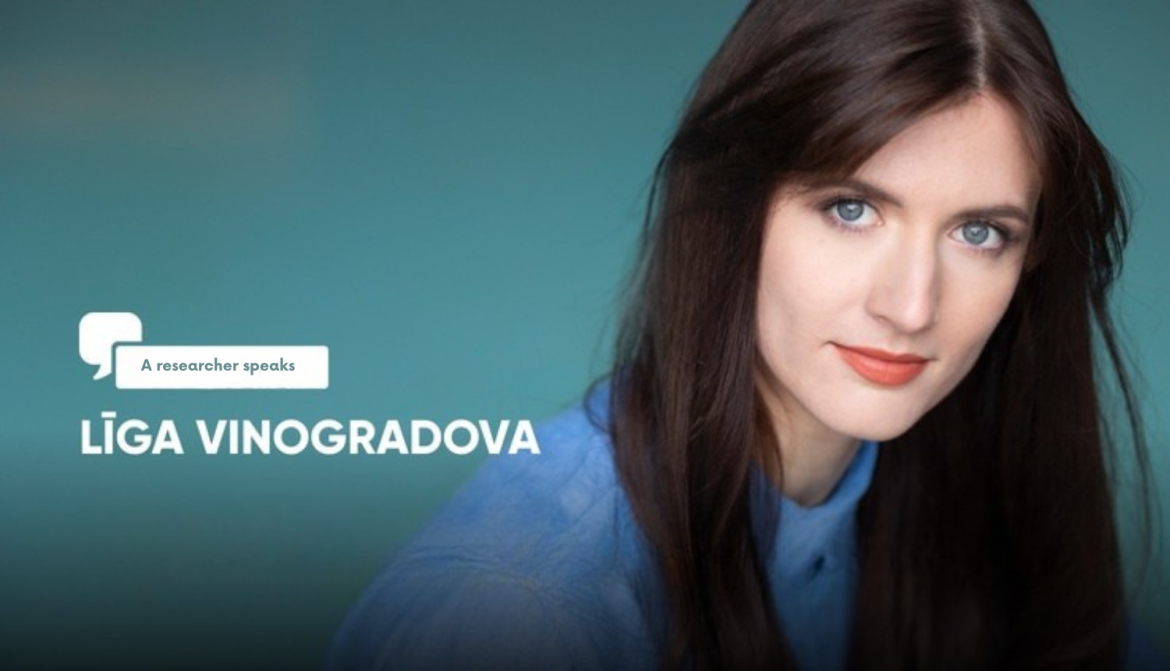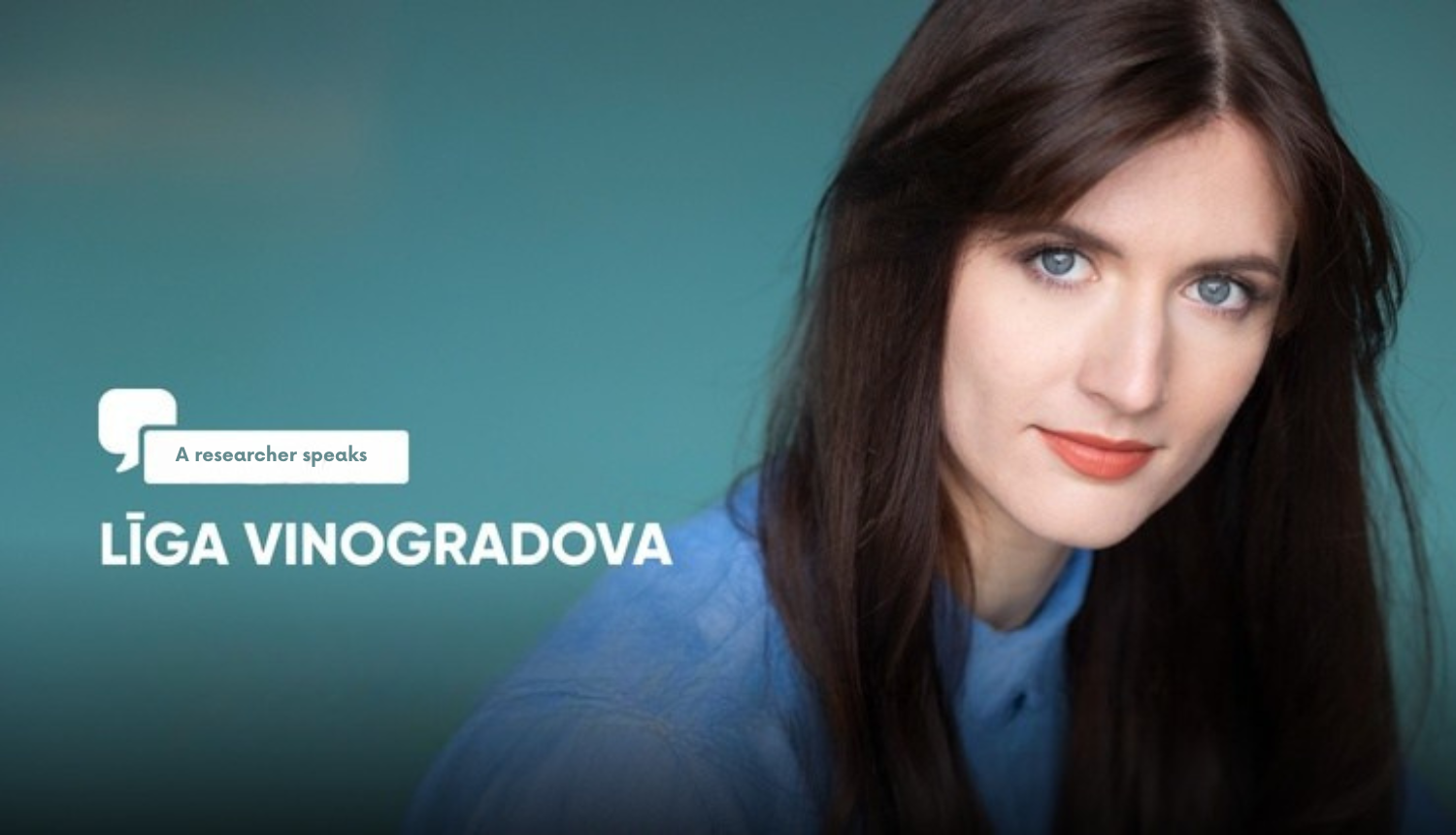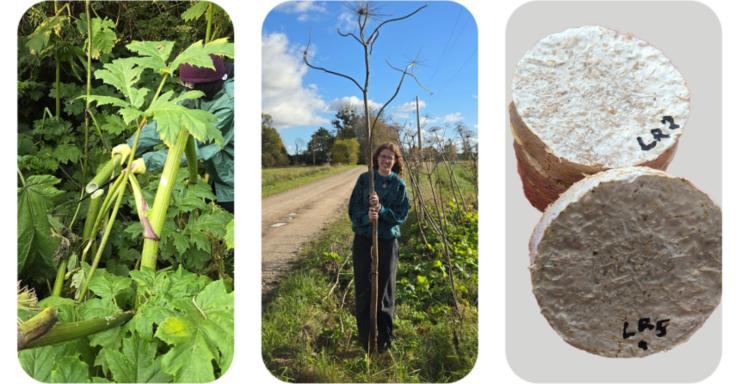In the column "A researcher speaks" of the Latvian Academy of Culture, festival tradition researcher and mother of two Līga Vinogradova, shares her experience

From research to experience
Seven years ago, together with other researchers from the Institute of Culture and Arts of the Latvian Academy of Culture, we wrote about the prerequisites for inheriting the Song and Dance Festival tradition in the monograph "Anatomy of Tradition" (2018). It seemed that so much had been covered - social, economic, identity, historical, and educational aspects. Later in my doctoral thesis, I studied the meaning of emotions in the context of the festival. Now I look back with interest at how life turns change the focus of a researcher. Becoming a mother, I am increasingly aware of how important parents are in our life paths.
How we relate to ourselves and others, how we see the world around us and what we want and can take from it. How we fill our days, what we choose to do when our duties are done. What culture and related activities we consume, how we participate and when we feel encouraged enough to create our own. Also, whether we honour Latvian traditions and how meaningfully we use the latest technologies. In a slight digression, similar to how my research interests have moved from traditions essential to Latvian identity to digital cultural content, I have no objections to either one; I am somewhat interested in how to take the best from each. And I believe that a balance is possible. Therefore, this time, it is about how a researcher of the Song and Dance Festival introduced her Generation Alpha children to this tradition.
On an unconscious level, my children were familiar with the Song and Dance Festival even before they were born. From toddlers to toddlers, both children were present as they wrote their doctoral theses. However, until this year, I had only managed to upload a video a couple of times and mention that there are such festivals where everyone sings or dances at the same time, and look, how beautiful! Since we raise children relatively free from screens, every video is perceived with interest. Despite this, there was no feeling that the conversation could be continued without practical experience. In my opinion, it is not easy for anyone to be a spectator of a festival on screens, without receiving such essential components as emotions and the power of togetherness in person, not to mention children. Therefore, the Latvian School Youth Song and Dance Festival was an opportunity that I, a festival researcher, could not miss, even if the children are still quite young.
Creating the joy of participation
Another confession – for children The “hook” of the Song and Dance Festival was thrown out last fall, when both (at that time 5 and 3 years old) went to a folk dance for the first time. This digression will be essential in understanding how a child’s joy of participation is gradually built. While studying dancers, what I observed fascinated me so much that I wanted to give my children the opportunity to experience the world of dance. In addition, there were several practical motives for this - we are a sporty family, and dancing allows us to move around, while simultaneously acquiring a sense of rhythm and dance skills, both children have rehearsals on the same day and in the same place, which allows us to leave other evenings of the workweek for play. My daughter, as a social person, really likes to dance and attend rehearsals, but my son was worried about being deprived of the opportunity to play two evenings a week. And here the eternal question for parents is - should they continue or let them leave? I am a child of a music school, so I still remember the feelings of the other side well. Seeing that a person runs out of rehearsal happy and does not have to be dragged by force, we agreed to talk after the concert. To allow ourselves to experience that, after hard work, there is a beautiful climax. Even after two concerts had passed, we returned to the conversation. My second request – if you don’t want to, let’s go and tell the teacher that you don’t want to continue, because she also put in the work, teaching them to dance.
Note to other millennial parents – our children are much braver and more capable, because I wouldn’t have had the courage to do it as a child, but this generation is so open that they do it! I am very grateful that the teachers of our generation are also just as understanding, accommodating and able to deal with such situations with great kindness. After the conversation, I went dancing, and for half a year, until the spring concert, I didn’t hear about not wanting to dance. All I heard was – “I need a bigger shirt”. “Will you dance then?”. “I’ll think about it until autumn”.
What does “boring” mean?
Summer is coming, the Latvian School Youth Song and Dance Festival. Preschoolers don’t dance in them, but as a researcher and an enthusiastic spectator, I want to enjoy them to the fullest, including enjoying the festival in Vērmanes Garden for free. From the ticketed events, I decided to go to the “ Viedvasari ” Arena and the Closing Concert on the Mežaparks Stage with my children. When buying tickets, I try to adapt as much as possible in a situation of high demand. At “Viedvasari ”, I got the last rows, which means that my children could potentially only disturb the front rows. In practice, this is how it happens – twice I get an angry look from the spectator in front, because I hadn’t noticed the foot that kicked the chair. Guilty, the rest of the time I was guarding my foot!
I hear about three “boring”, and then the question is, how to react to “boring”? First, I notice that the child (6 years old) is watching with interest. He has already seen many dances at his concerts, is interested in whether his group is dancing. Knowing my child, I conclude that “boring” is a pose, because his mother made him come to the concert, although he hasn’t visited his grandmother in two weekends! Of course, objectively speaking, a cultural event is not even close to an experience similar to a mud bath in a sandbox. That's why I didn't get excited and wondered what the "summary" of it all would be. My daughter (4 years old) admitted that she liked it, just too long. To prepare for the Closing Concert with a clear mind, I sent my son to spend a couple of days with his grandmother, but my daughter and I stayed to enjoy the festivities. Two hours before the Dance Concert, we unexpectedly get one ticket, and she's ready to go!
The feedback from the child after the Dance Concert is only the best, although in the middle of the concert, I heard at least one person say "bored" and that they would rather sit in their seat. I will note that many cultural events offer the opportunity to take children up to seven years old on their laps for free, but I usually don't try to use this opportunity - children feel valued and essential in their place, and it's also more convenient for all parties involved. Parents should be familiar with the specifics of the venue beforehand, for example, the Arena and Daugava Stadium have very narrow spaces, while Mežaparks has spacious ones.
On Sunday, we went to the parade early in the morning, which can be a grandiose event for a child, and it's free - why not experience it? Of course, the convocation of spectators and groups makes the parade special, and this is a part of the tradition that has been making me increasingly concerned in recent years! Do children and young people, who haven't experienced the festival for ten years, even know what's going on at the parade? Is it enough to have a few adults in the group to maintain the spirit of the convocation? Are Latvians even capable of shouting "hello!" to someone (even a stranger)? At previous adult festivals, I've noticed that as a shy Latvian, I am encouraged to shout a greeting by the presence of children, whose joy and surprise, if one of the participants in the parade also says "hello to the League", is invaluable! It helps if there are known participants in several regions. This time we are welcoming Riga with our daughter's dance group, a teacher who we see with the principals, friends and relatives from Limbaži, Gulbene, Ogre. Due to two streams, we are unable to greet our friends from Zemgale, but the few-hour procession passes quickly and is a pleasant process even for the little spectator. On the way back from the procession, my daughter happily falls asleep in a singing trolleybus.
In the evening, the whole family goes to the Mežaparks stage. There are some "why do I have to go?" moments, but surprisingly, everyone in the family puts on their holiday clothes and is ready to go without any unnecessary drama. We have also got a sector edge there, which helps us leave faster if necessary. We used it once in the middle of the concert, realising that the children would not sit for that long. It is a bit of a pity that I did not hear everything, but I told myself for weeks that this is how it can happen and that we should be at peace with it. When I wanted to say that everything, let's go back, it was the little girl who said - I want to go back to the concert! It is difficult to assess how engaging the Closing Concert was for children, because the stage appears distant, the details are difficult to distinguish, but the open-air environment leads to various thoughts unrelated to the concerts. It was challenging to get back on track after the brass band "party".
I must say that this was also the special thing about this festival - if I compare it to the previous two adult festivals, back then, the school festival had a much more relaxed atmosphere, and it was more pleasant to be there with children (I was not at the big ones). There were many other children, a more relaxed audience and the concert offered the opportunity to participate by making a flag, partying and singing along. You probably can't expect children to grasp the essence of "Gaismas pils immediately", but it's interesting to look at your answers as to why this or that song is important to Latvians. After the concert, we jumped on the old singing tram. It was my son who said, "I like that we sing, we're going to the centre!" My daughter fell asleep on the tram again, this time in her father's arms. As we got out, we sang "Projām jaiet, projām jaiet..." out the tram window, my son waved happily at the tram for a long time. The next day, we watched the Closing Concert on TV with interest. My son asked - when will the Song and Dance Festival be again? And in a few days, Mom, we will have a dance in the September concert?
Shared family cultural experience
It is difficult to assess exactly what impact childhood experience has, and as a researcher, I would not want to romanticise that it is always only positive. But I like to see how children's cultural experience unfolds over a wider period. As a parent, you have to be strong to understand that every "I don't want to", "bored", "what's taking so long" should not be perceived as a knife in the back. Sometimes "I don't want to" means "I'd rather build Lego now " or "I'm hungry now, so I don't want to, but I like it". In turn, "bored" means "I need to run or do a pirouette on the chairs" or " I'm more attracted to watching Transformers, but this is not uninteresting". You have to plan carefully, communicate with the child, understand his needs and know that the cultural experience with children for a parent is not the same as without children. Children are very different. Shared family cultural experience can be an opportunity to learn the art of compromise at the same time. Some people will like dancing, some will like songs, for some the singing train, for some it is better to run around the yard and limit the number of events, for others it is better to come along. But if it is not a few days before you hear, when will it be again? Then you have to think that giving children this experience was worth it!
In conclusion, I will add that the Song and Dance Festival has two sides – participants and spectators. What the participants do is fantastic! And here parents, especially the youngest children, play an invaluable role! In my opinion, this year it was excellently appreciated in the Dance Concert, where parents had the opportunity to participate, being “pixels” in the scenography. I will not even talk about those who lived through the holiday week with sweaty backs and strong nerves. But here we inevitably have to return to everyday practices, which I wrote about in “The Anatomy of Tradition”. The responsibility lies with parents to encourage their children to get involved, to organise their daily lives around rehearsals, their holidays around concerts, to cheer them up when they're tired, and to be there simply. And then there's the other side – the audience. They also need to be nurtured, and children and parents who don't participate themselves need to be allowed to come. Before the festival, there was much discussion about allowing only parents to buy tickets. But for the tradition to be inherited, new participants need to join it.
Supporting and encouraging children to attend the Song and Dance Festival as spectators, even if it's not always convenient for everyone, is another way to introduce children to the holiday tradition. The Song and Dance Festival provides an excellent opportunity to gain emotions and an irreplaceable experience at free events, even if it's not possible to buy tickets. I'm aware that purchasing tickets to cultural events and their accompanying extras is not a cheap pleasure. I fantasise in the context of my subsequent research that maybe there's a family who wants to introduce their children to the experience of being present at the holiday tradition so much that they're ready to save up for it, giving up Netflix and other digital subscriptions? That could also be a strategy for affording the holidays. After all, we, families, have the opportunity to be mediators of cultural participation from a very young age, so that after a while we will hear – when will I be able to?


